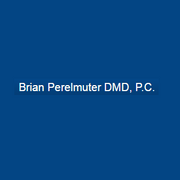A Guide to Teeth Grinding While Asleep

Many people grind their teeth during the night, but it can be a challenge to identify and address this issue since the damage is done while asleep. Also known as bruxism, this habit can cause significant damage to the teeth over time, so it's important to take action and protect your oral health if you suspect this is happening in your sleep. Luckily, a dentist can help mitigate the harmful effects of bruxism and recommend solutions like a night guard to protect the teeth. Here's what you should know about this condition and how it's treated.
How to Identify Nighttime Teeth Grinding
If you wake up with a headache, tooth pain, or a sore, tight jaw that causes discomfort throughout the day, it's possible that teeth grinding is taking place while you're asleep. You might have disruptive sleeping patterns, or a partner may say they hear your teeth grinding in the night. The mouth, jaw, or ears may feel more sensitive than usual, and in the case of repeated grinding over a long period, cracks and chips may appear in the teeth.
Why Bruxism Is a Problem
Along with cracks and tenderness, grinding your teeth can cause the enamel to wear away, affecting the nerves inside the teeth. Symptoms like flattening, extreme temperature sensitivity, and premature dental aging can all be caused by bruxism.
While light grinding or clenching may not lead to the most severe side effects in the short term, constant strain on your teeth and jaw can cause long-term issues that may prove extensive and painful. Breakage or chipping may result in tooth extractions and the need for dental implants if not dealt with in a timely manner. If you have teeth that are misaligned, they can increase the likelihood of tension and clenching.
How to Address It

The most effective way to handle nighttime bruxism is to protect the teeth overnight. Preventive measures like a night guard can help prevent the detrimental effects of grinding. These devices typically cover the upper teeth and stop them from rubbing against the lower row. A dentist will take a mold of your unique bite to create a custom guard just for you; this helps avoid alignment problems that may result from a one-size-fits-all model.
In addition to wearing a night guard while sleeping, removing stimulants like caffeine, alcohol, and sugar after dinnertime will make sleep more restful. This is because your jaw muscles will be able to relax and avoid tension that causes clenching.
It's also wise to implement a dedicated oral hygiene routine, brushing for two minutes twice a day and flossing once daily, as these actions will help keep your enamel strong. Finally, biannual checkups with a dental professional will allow the detection of any issues early enough to prevent more serious problems.
If you believe you may be grinding your teeth in your sleep, Brian Perelmuter, DMD, P.C., will help you find the right solution for your needs. Specializing in preventive and emergency services, this dentist has over 20 years of experience and provides everything from custom-designed night guards to oral surgery for residents of Naugatuck, CT, and the surrounding communities. To schedule an appointment, call (203) 729-3323. Learn more about their services on their website.
About the Business
Have a question? Ask the experts!
Send your question

